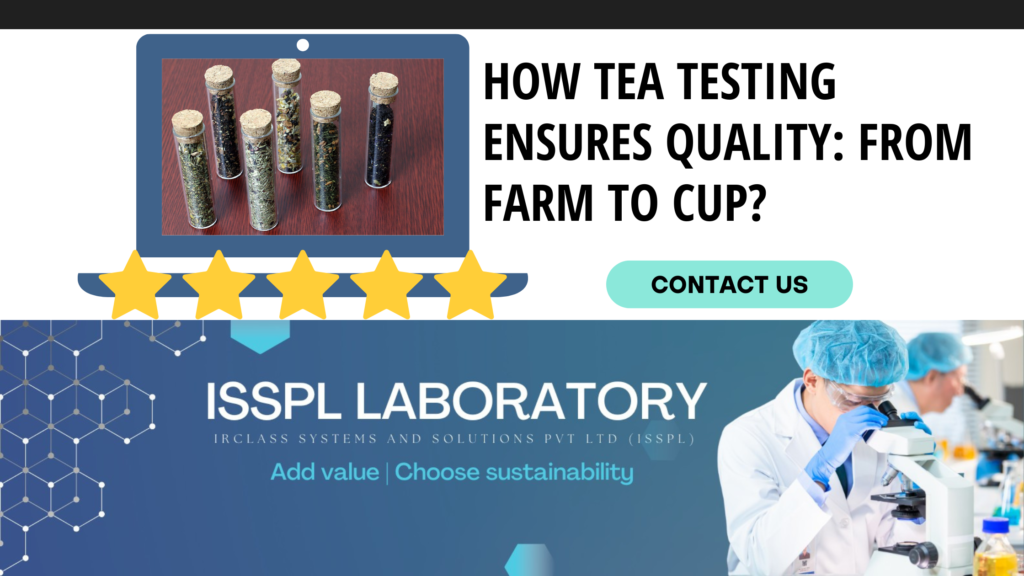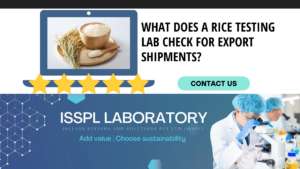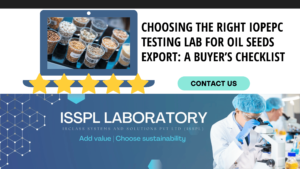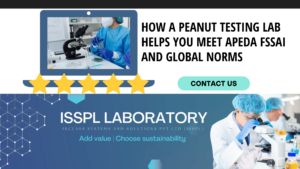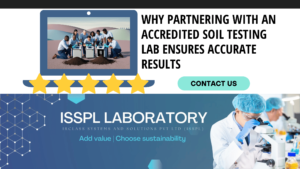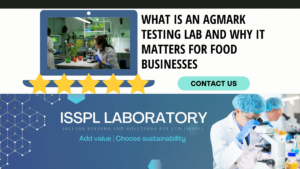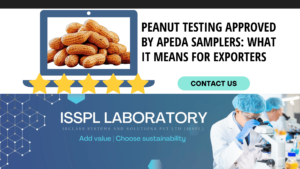An Overview by Team ISSPL - Analytical Testing Laboratory in India
ToggleTea is a beverage that is by far the most loved all over the world for its taste, aroma, and health benefits. But the chain from farm to consumer is long and complicated. The beverage has careful quality control procedures with each sip being enjoyed gracefully & safely too!
Where would tea testing help you? Through a range of testing methods deployed at different stages of the production process, it allows manufacturers to uphold the tea quality, taste, and safety levels with perfect harmony. In this blog, we will have a look at how tea testing improves quality from the farm to your cup of tea.
The Importance of Quality in Tea Production
Quality is paramount when it comes to tea production for various reasons. To start, tea is an important agricultural commodity providing income and employment for millions of farmers worldwide. High quality means that the brand is not only upholding its reputation but also keeping consumer trust.
Firstly, the quality of leaves and processing methods greatly affect the flavor & aroma of tea. The rancid tea could give rise to an infelicitous taste profile that consumers would not accept. Lastly, the issue of safety is a significant concern given that it can be dangerous to consume tainted tea. Painfulness in process and outcomes are similarly necessary elements to make the tea remain quality.
Testing at the Farm Level
The commitment to quality tea steps on when it is at the farm’s end. That is needed for farmers as well as to take care of the tea plant healthy and free from pests and diseases; most importantly it has enough nutrients. It starts with Soil Testing where the soil’s pH, nutrient content, and contamination levels are checked. Good soil is also a very important factor in the production of good tea. This pre-plant checkup also gives a heads-up if the soil lacks essential nutrients or if there are some harmful substances in it and corrective actions can be done before planting.
That was Leaf Testing, to determine the average percentage of chemicals found in tea leaves. For example, pesticide or heavy metal and any other possible contaminant screenings. When tea prices began to rise around 40 years ago, they became subject to testing so farmers had no choice but the comply with their safety regulations and produce very little of what people can regard as heavily sprayed high chemical residue-free products.
Harvesting and Processing Tests
After tea leaves are picked, they can be treated by various methods which include withering (air drying), rolling, oxidation, and firing. Every single one of these steps dramatically affects the flavor and quality of your end product. Here, Moisture Content Testing becomes very important.
Care should be taken to keep the moisture levels right so that molds do not form and there is no spoilage. More moisture will degrade flavor and aroma, making measuring off these becomes an essential element of quality control.
At this stage, Microbial Testing is also carried out to ascertain there are no harmful microorganisms present in the processed tea leaves. It tests total plate counts (TPC) & levels of yeast and mold. Less microbial count means, the processing conditions were hygienic and the product can be consumed without any worry.
Flavor and Aroma Testing
Quality tea is determined by its taste and aroma. A variety of tests are employed to make sure the tea has just that taste profile. One of the most widely used methods to evaluate flavor and aroma Sensory Evaluation. To ensure the quality of their finished product, specially-trained tasters will evaluate a tea by its appearance and aroma as well as its taste (liquor) in both color and flavor panels to ascertain if they adhere to expectations. Such subjective testing is invaluable, as it gives us information on the tea’s development and commercial scope.
Packaging and Shelf Life Testing
After processing and checking the taste & aroma of tea, it is packed for distribution. Packaging also plays a vital role in Tea and the quality of tea cannot be retained for a longer time during storage & transit. Packaging Material Testing: This sits in following the past Qaagility and is fundamental since we can’t have materials that will filter hazardous substances into our tea. Furthermore, packaging needs to shield the tea from light moisture and air since they can diminish its quality if coming into contact with it.
Shelf Life Testing To determine how long the tea can retain its quality, Shelf Life (SL) testing is carried out. A lot of tea tasting goes into storing the tea under controlled conditions and assessing its flavor, aroma, and appearance regularly over time. Knowing the shelf life helps manufacturers to determine an expiration date and for consumers, how fresh their tea is.
Quality Assurance in Distribution
Customers buy the tea cane directly from the market and it finds its way to their cup of coffee through one too many distribution channels — wholesalers, retailers, online outlets, etc. It is very important to ensure quality at the distribution end to preserve tea.
Monitoring of temperature and humidity during transportation and storage. Tea must be stored in a cool, dry place so it does not spoil. Data loggers are widely used by manufacturers to track these conditions and keep the tea in optimal environments at all times during its journey down the supply chain.
Testing at the Retail Level
As we go downwards the hanging chain, comes the quality assurance of testing in retail. Consumer Feedback is a major part of quality control. Feedback on the mouthfeel, fragrance, and experience of tea is commonly sought after by consumers through manufacturers and retailers. Such feedback is immensely valuable for iteration on production or quality assurance processes.
Similarly, some retailers do their own Quality Testing of incoming products to ensure they arrive and then adhere/commit to them being put up for sale. This might involve sensory evaluations and chemical analyses which are akin to that at the time of production.
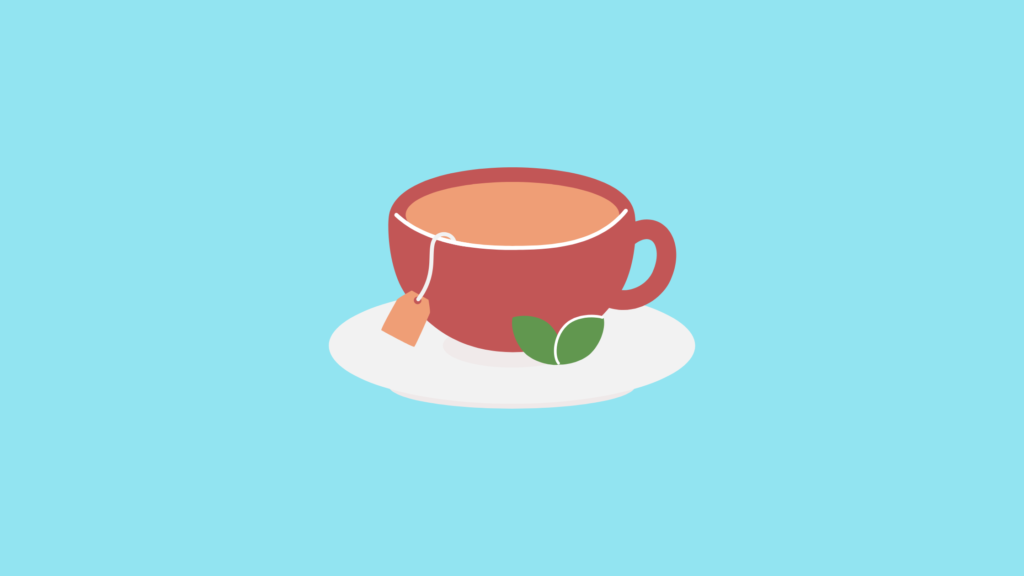
Regulatory Compliance and Certifications
When testing tea, compliance with regulatory standards is a key issue. Safety and quality standards are established by different organizations from around the world to regulate food products, tea inclusive. These are terms that manufacturers must (or may choose to) abide by and receive certifications for, or opt out of providing zero guarantees. The certifications must pass stringent testing and auditing to make sure the tea meets strict criteria for responsible agricultural practices.
Conclusion
So in short, Tea Testing is the most important element in maintaining quality from farm to cup. Manufacturers can thus ensure through advanced testing measures such as soil and micro-tests, taste checks, and packaging evaluations that their tea products are of the highest quality in terms of health, and safety standards as well also flavor. Consumer tastes change, and the demand for premium teas increases—over time quality assurance becomes more important.
Tea testing can lead to increased consumer confidence, brand loyalty, and ultimately — the success of tea as a beverage. Integrating reputed testing facilities such as ISSPL Lab will help in fortifying these quality assurance processes further ensuring that all the products comply with regulatory and industry standards.
